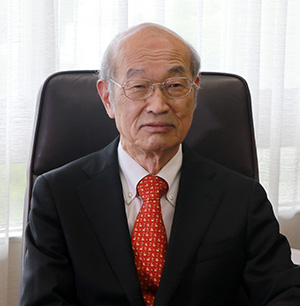On September 29th, Fumio Kishida was selected as the new president of the Liberal Democratic Party, succeeding Yoshihide Suga. Kishida will become the 100th prime minister. I would like to share my thoughts on this presidential election, in which the four candidates engaged in solid policy debate for the first time in a long time.
First, the major political issues facing the world's major countries are almost the same. Throughout the election, the new president of the LDP, Kishida, has used key phrases such as "breaking away from neoliberalism," "building a new capitalism," and "a virtuous cycle of growth and distribution" to develop his policy arguments. What these have in common is a concern about the widening gap in income and assets.
In other words, as the neoliberal idea of ensuring economic growth by encouraging market competition among the private sector and keeping the government less involved in economic activity ("small government") has taken root, the wealthy have become even wealthier, while the low-income classes have been left behind. As a result, the middle class has declined, society has become divided into the "haves" and the "have-nots," and public dissatisfaction with politics has grown. This is why Kishida has now declared a break with neoliberalism and is calling for the reconstruction of capitalism.
Almost all of the candidates shared the same message of "building a thick middle class." If I remember correctly, the expression "thick middle class" was first used by Prime Minister Yoshihiko Noda during the Democratic Party administration.
This phenomenon of widening disparity and the decline of the middle class are common issues for major developed countries. On September 26, a federal election was held in Germany, where Chancellor Merkel has served as chancellor for 16 years, and the center-left Social Democratic Party (SPD) defeated Chancellor Merkel's center-right Christian Democratic Union/Christian Social Union (CDU/CSU). In the United States, President Biden is planning to embark on a large-scale strengthening of social infrastructure using funds from tax increases on the wealthy.
Another thing is that Mr. Kishida belongs to the Kochikai, which has the longest history. The Kochikai is a group of liberal politicians from Hiroshima Prefecture within the Liberal Democratic Party that was founded by former Prime Minister Ikeda Hayato, who is famous for his "National Income Doubling Plan." The group has produced four prime ministers to date: Ikeda Hayato, Ohira Masayoshi, Suzuki Zenko, and Miyazawa Kiichi. Mr. Kishida will be the fifth. The Miyazawa administration was formed in 1991, so Mr. Kishida is the first prime minister to belong to the Kochikai in 30 years.
The author participated in the formulation of the "Five-Year Plan for a Greater Living Nation" (1992-1996) proposed by Prime Minister Miyazawa as a member of the Economic Council. This five-year plan was the last full-scale economic plan of the government. When the Miyazawa administration came to power, it was said to be a "mainstream conservative administration." For this reason, it broke away from previous economic plans that aimed to raise the economic growth rate and expand the size of the economy, and instead set the expansion of domestic demand commensurate with the expansion of the economy and the improvement of people's lives as the pillars of its economic policy. The new president of the LDP, Kishida, who has called for the reduction of inequality, has advocated a "Reiwa version of income doubling," which can be said to reflect the economic thinking of the successive Kochikai parties.
The idea of neoliberalism, advocated by American Professor Milton Friedman and others, was first introduced into economic policy by the Margaret Thatcher administration, which came to power in the UK in 1979, as a criticism of the welfare state policy of the previous Labour administration. At the time, the world economy was suffering from a serious simultaneous recession due to the second oil shock, and the government was in financial difficulty. The idea of the so-called "Sacher Revolution," which sought to promote market competition and increase growth potential by privatizing state-owned enterprises such as railways, oil, and aviation businesses and removing public regulations, had a major impact on the economic policies of the administrations of Ronald Reagan (1981) in the US, Helmut Kohl (1982) in West Germany, and Yasuhiro Nakasone (1982) in Japan. It is still fresh in our memory that in Japan, the Junichiro Koizumi administration, which came to power in 2001, strongly promoted the idea with the slogan "No growth without reform."
Kishida stated, "'There can be no distribution without growth,' but it is also true that there can be no further growth without distribution.' I want to realize a virtuous cycle of growth and distribution, and ensure that the fruits of growth are delivered to every corner of the country. I will implement policies to raise the incomes and salaries of as many people as possible." We have high hopes for this.
(Diary entry dated September 30, 2021)

[Profile of Shigeo Uchida]
Graduated from the Faculty of Economics at Keio University in 1965. Joined the Nikkei Inc. After working in the Securities Department of the Editorial Office, the Japan Center for Economic Research, head of the Securities Department at the Tokyo Head Office and as an editorial writer, he became Professor Chiba University of Commerce in 2000. He has been Managing Director Corporation since 2011 (until May 2019). He is also Professor Emeritus Chiba University of Commerce. He has served as a member of the Economic Council, Securities and Exchange Council, and Research Council for Energy, among others. His hobby is chorus.
<Major publications>
"Seminar: Introduction to the Japanese Economy" (co-author, Nihon Keizai Shimbun)
"Showa Economic History (Part 2)" (co-author, Nihon Keizai Shimbun)
"The New Japanese Economy" (co-author, Nihon Keizai Shimbun)
"History of Japanese Securities 3" and "Now You Can Understand! How the Japanese Economy Works" (sole author, Nihon Keizai Shimbun, Inc.)
"New Introduction to the Japanese Economy" (co-author, Nikkei Publishing Inc.) and others